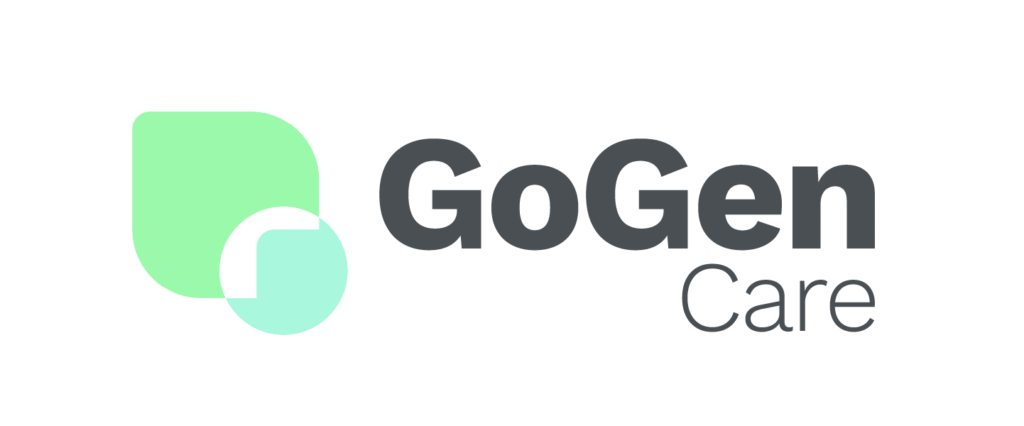As a nurse practitioner running your own Private practice, you wear many hats. You are not just a healthcare provider; you are also an entrepreneur, a manager, and often the first line of support for your patients. While this role can be incredibly rewarding, it can also lead to overwhelming stress and burnout. The pressures of managing patient care along with the business side of things can feel relentless.
In this blog post, we’ll explore practical strategies tailored specifically for nurse practitioners like yourself who find themselves battling burnout while juggling their responsibilities within their practices. From setting boundaries and improving time management techniques to embracing self-care rituals—there’s hope on the horizon! Let’s dive into ways you can reclaim joy in your profession while ensuring sustainable growth for years ahead.
Understanding Burnout: Signs and Symptoms for Nurse Practitioners
Burnout is a state of emotional, physical, and mental exhaustion. For nurse practitioners, it often stems from prolonged stress and demands that seem unending.
Common signs include feelings of detachment or cynicism towards patients. You might notice an increase in irritability or mood swings, especially in high-pressure situations.
Physical symptoms can manifest as fatigue or sleep disturbances. When you dread going to work each day or find joy in patient interactions slipping away, these are red flags.
Cognitive overload is another symptom; tasks that once felt manageable may start to feel overwhelming. If you’re struggling with concentration and decision-making, it’s time to take a step back and assess your well-being.
Recognizing these signs early allows for timely intervention. Understanding burnout will empower you to take control before it escalates further into more severe health issues.
Why Nurse Practitioners in Private Practice Are at Higher Risk for Burnout
Nurse practitioners in private practice often wear many hats. They are not just caregivers; they also manage the business side of things. This dual responsibility can quickly become overwhelming.
The pressure to attract and retain patients adds another layer of stress. Marketing efforts, financial management, and compliance with regulations demand time and energy that could otherwise be devoted to patient care.
Isolation is a common issue for NPs running their own practices. Unlike those in larger healthcare settings, they may lack immediate support from colleagues. The absence of a collaborative environment can lead to feelings of loneliness and increased emotional strain.
Moreover, high expectations—both self-imposed and external—can create an unsustainable work pattern. Balancing quality patient care while meeting business goals often feels like walking a tightrope without a safety net.
Setting Boundaries: How to Manage Workload Without Overextending Yourself
Setting boundaries is essential for maintaining your well-being as a nurse practitioner in private practice. It starts with recognizing your limits and knowing when to say no.
Communicate clearly with patients about appointment times and availability. This transparency helps manage expectations while allowing you to maintain control over your schedule.
Create designated work hours, and stick to them. When the day ends, resist the urge to check emails or take calls. A clear separation between work and personal life can recharge your energy.
Don’t hesitate to delegate tasks that fall outside your expertise or consume too much time. Empowering support staff not only lightens your load but also fosters teamwork within the practice.
Remember that self-care isn’t selfish; it’s necessary for long-term success in managing a thriving practice without burning out. Prioritizing these boundaries leads to healthier habits and improved patient care outcomes.
Time Management Strategies to Reduce Stress and Increase Efficiency
Managing time effectively is crucial for nurse practitioners running a private practice. Start by prioritizing tasks. Use the Eisenhower Matrix to distinguish between urgent and important activities.
Next, consider batching similar tasks together. This approach minimizes distractions and allows you to focus more deeply on each task at hand. For example, set aside specific times for patient notes or administrative work instead of scattering them throughout your day.
Utilizing digital tools and enhancing efficiency.
Calendar apps let you schedule appointments while setting reminders ensures nothing slips through the cracks.
Don’t forget about breaks; they are essential for maintaining energy levels. Schedule short pauses between intense periods of work to recharge both mentally and physically.
Learning to say no can free up valuable time that could be better spent on critical aspects of your practice or even personal well-being.
The Role of Delegation: When and How to Outsource Tasks in Your Practice
As a nurse practitioner in private practice, you have multiple roles to fulfill. Balancing patient care, administrative tasks, and business management can be overwhelming.
Self-Care for NPs: Prioritizing Mental and Physical Well-Being
Self-care is crucial for nurse practitioners, especially when balancing the demands of running a private practice. It’s easy for prioritizing our well-being to fall down on the to-do list. Find activities that rejuvenate you, such as yoga, reading, or taking walks in nature. These pursuits can clear your mind and reduce stress. Remember to choose whole foods over vending machine snacks for proper nutrition, and stay hydrated throughout your busy day. Mindfulness practices, like short meditation sessions, can also make a significant impact in grounding yourself amidst chaos. Even five minutes can refocus your attention. Don’t overlook the importance of restorative sleep for both physical health and emotional resilience as an NP.
How to Use Technology to Streamline Your Practice and Reduce Administrative Burden
By embracing technology, you can completely transform the way you manage your private practice. Begin by implementing an efficient electronic health record (EHR) system, which centralizes patient information and makes it easily accessible and up-to-date. Why stop there? Automate appointment scheduling with online tools that allow patients to book slots without back-and-forth communication, freeing up your time for more critical tasks. Streamline your billing process as well with billing software, which simplifies invoicing, tracks payments, and ensures accuracy in insurance claims, minimizing administrative errors that often cause delays. Take your practice to the next level by implementing telehealth services to expand care options and reduce in-office workload. With streamlined communication, collaboration will be a breeze without overwhelming everyone involved in your practice’s operations.
Building a Support System: The Importance of Peer Networks and Mentorship
The intricacies of managing a private practice can be a lonely journey, which is why having a solid support system is essential for nurse practitioners. Developing meaningful connections with fellow professionals who empathize with your difficulties can offer solace and inspiration. Building this bond creates a sense of camaraderie, enabling you to gain insights from one another’s achievements and challenges. Equally important is having a mentor who can provide valuable guidance based on their own experiences, aiding you in navigating difficult choices and pursuing growth opportunities without falling into common traps.
Additionally, engaging in professional networks can open doors to resources that streamline your operations. Networking events, online forums, or local associations offer chances to connect with others in your field.
Financial Stress and Burnout: Managing Business Expenses Without Overwhelming Yourself
For nurse practitioners managing a private practice, financial worries can be a heavy burden. The delicate balance between delivering quality care and keeping expenses in check is often difficult to maintain.
Long-Term Strategies for Sustainable Growth Without Sacrificing Your Health
Ensuring sustainable growth in your private practice is about more than just increasing patient numbers and revenue. A crucial aspect is maintaining a healthy work-life balance that allows you to thrive as a nurse practitioner. By developing long-term strategies, you can ensure the success of your practice while prioritizing your well-being.
Frequently Asked Questions (FAQ)
1. What is burnout and how can I recognize it as a nurse practitioner?
Burnout is a state of emotional, physical, and mental exhaustion caused by prolonged stress. For nurse practitioners, it can include feelings of detachment from patients, irritability, fatigue, sleep disturbances, and cognitive overload. Recognizing these signs early can help you take action to prevent it from escalating into more severe health issues.
2. Why are nurse practitioners in private practice at higher risk for burnout?
Nurse practitioners in private practice face the unique challenge of balancing patient care with the business side of their practice. This dual responsibility can lead to increased stress. The lack of immediate support from colleagues, the pressure of attracting and retaining patients, and the need to manage marketing, financials, and compliance can contribute to burnout.
3. How can I set boundaries to prevent burnout?
Setting boundaries starts with recognizing your limits and being transparent with patients about your availability. Creating designated work hours, delegating tasks outside your expertise, and making time for self-care are essential for maintaining balance. Make sure to disconnect after work to recharge and maintain a healthy work-life balance.
4. What are some effective time management strategies for nurse practitioners?
Prioritize tasks using the Eisenhower Matrix to separate urgent from important activities. Batch similar tasks together to minimize distractions and increase focus. Use digital tools like calendar apps to schedule appointments and set reminders. Don’t forget to schedule regular breaks to recharge during your busy days.
5. When should I consider delegating tasks in my practice?
Delegating is key when tasks fall outside your expertise or consume too much time. Consider hiring administrative support, outsourcing billing or marketing efforts, and leveraging technology to handle routine tasks. Delegating allows you to focus on what truly matters: patient care and growing your practice.


